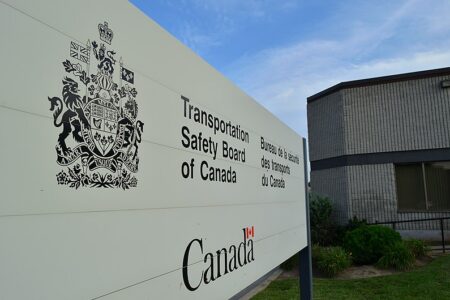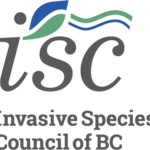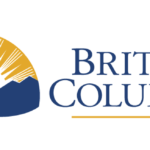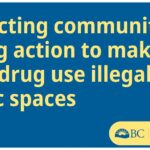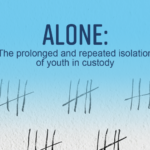By-Election coming up for Rossland
Voters and potential candidates – this is for everyone.
Candidates who were nominated for the by-election that was scheduled for earlier in the year, which was cancelled by the Provincial government with the onset of the COVID-19 pandemic, will need to be nominated again to stand for election in the upcoming by-election. Others who may have considered standing for election earlier now have an opportunity to consider it again, and to stand for election.
The Council member elected in this by-election will hold office, once sworn in following the by-election, until the next general election of municipal officers on October 15, 2022 – or, of course, longer if re-elected then.
The regular term of office for Council members is four years.
Nomination packages will be available at City Hall, or online at www.rossland.ca starting on Monday, September 22, until the end of the nomination period.
Nominations can be submitted during the Nomination period: from 9:00 am on October 13, 2020, until 4:00 pm on October 23, 2020 (local time).
General Voting Day will be November 28, 2020, from 8:00 am until 8:00 pm.
In accordance with the governing legislation, advance voting opportunities will be available on:
Wednesday November 18, 2020 (8am-8pm)
Wednesday November 25, 2020 (8am-8pm)
There, that’s the basic information out of the way – now let’s think about what qualities are helpful, or not, on a City Council. I’m going to take this opportunity to recycle an article I wrote on this topic before the 2018 civic election, after attending a workshop put on by a pair of governance instructors – who did a lively and engaging job of the workshop. The information they provided was useful for both candidates and voters – as well as council members already in office.
Who were these experts? Christina Benty served two terms as a councillor in Golden before being elected as mayor and serving two more terms in that role. Caleb Moss was in his third term as a councillor in Golden, and was serving as Vice-Chair of the Columbia Shuswap Regional District. Benty describes herself as a “recovering politician” and is the owner of “Strategic Leadership Solutions” consultancy. Moss is a principal in the consultancy, and they have traveled across the country helping municipal governments and their members become more effective.
They produced a short, readable handbook on local government and how to achieve good local governance; it was done for the Yukon, but its main contents are equally applicable to municipal governments anywhere in Canada. It’s called “The Joy of Governing” and you can read it by clicking this link which will take you to the PDF. It’s a worthwhile read for anyone who lives in a community with a local government – not just the elected officials, but all citizens should understand the basics. And many don’t.
Why do we even have local governments?
Would it really be better to have less government? What are the roles of Council and Staff? Should a local government really be “run like a business”? (The short answer is NO. See page 9 in the above-mentioned booklet.) What qualities should council members have? What should council members avoid doing? What is “asset management” and why is it so important? And much more.
The basic function of local government is to deliver services to the community. Staff does the work of service delivery, and Council decides how to prioritize those services, sets out policies for staff to follow, is responsible for stewardship of the community’s assets. Staff provides Council with factual information and options to weigh and use in decision-making. Council represents the interests of the community—not necessarily everyone’s various opinions, but the people’s need for such things as continuing clean water, functioning sewer systems, roads and walkways that serve people’s need for safety. And in making decisions about what levels of service the populace is willing to pay enough to get. And more.
Local governments exist to do what they do on behalf of their provincial or territorial government, and they operate under provincial or territorial legislation.
Taxes!
Benty pointed out that communities across the nation have kept taxes artificially low for many decades (or spent the money on things other than maintaining infrastructure) with the result that one-third of infrastructure in Canada (mostly water pipes, sewer pipes, and other “invisible” infrastructure) has been rated as being in “poor” or “very poor” condition. More money needs to be spent now, because not enough money was spent or set aside earlier. Where does that money come from? Mostly from property taxes. Benty explained that communication is key to helping citizens understand the need for fixing the pipes (etc.) – “use every modality of communication!” she urged.
She said that in Golden, communication about the facts of the crumbling infrastructure enabled Golden Town Council to address the need for infrastructure repairs and replacement by going from “normal” tax increases of only one-and-a-half percent or two percent a year, to tax increases of five percent a year over five years.
Who do we need on Council?
What kind of people do we want as council members? As Moss pointed out, we never hear anyone identifying “complaining, blaming, finger-pointing and criticizing” as skills that are useful at the council table. (That’s because they’re not, he explained.)
But qualities of curiosity, being a good listener and open to new information, being respectful and courteous toward others, being articulate and a good communicator, being well-prepared for discussions (that means having read thoroughly through all materials before meetings, and having done any additional research on topics on the agenda), being able to admit errors, being non-argumentative and able to accept opposition on topics without taking it personally, having integrity and empathy, and doing long-term strategic thinking — people at the meeting identified all of these qualities as desirable in elected officials.
And what we don’t want on Council:
Benty and Moss went over what they called “the Seven Deadly Sins” that candidates and elected officials must avoid, to be part of an effective governance team. Candidates, pay attention! Citizens, if you see a candidate or council member displaying the seven deadly sins, call them on it – and vote for someone else! Here’s a list of things to avoid doing – or voting for:
Making promises about what you’ll get Council to do once you’re elected; you can’t do that, because you’re just one vote. And you probably don’t have all the information on the topic (whatever it is) yet anyway.
Being unprepared at meetings. If you aren’t prepared, you’re wasting everyone’s time.
Trying to boss staff members – that is NOT your job as a councillor; it’s the CAO’s job. If you try to give direction to staff, you’re just meddling and it’s really, really inappropriate.
Trying to make everyone happy – it’s just not possible. Act in the best interests of the community as a whole, instead.
Having a fixed mindset and not listening to alternate views and reasoning – being unable to take in new information if it doesn’t support your prejudices is not helpful.
Criticizing, blaming and complaining are not only unproductive but also damaging to the relationships you need to build to be effective.
Talking only to “your peeps” – if you limit your conversations to your buddies and those who already agree with you about almost everything, you’re not being curious enough and you’re failing in your role as a community representative.
Preparation for candidacy:
Still considering being a candidate? Some strongly recommended preparation includes:
Attend several Council meetings, and read factual reports on Council meetings; be informed of facts – don’t base your candidacy or your campaign on rumours you heard in the coffee shop, the bar, or the locker room.
Talk to several current council members – not just one or two – and elicit information from them.
Sign up, if you haven’t already, to receive Council’s agenda packages – and read them all the way through.
Sign up for other notifications from the City.
Read the “Joy of Governing” document.
If you’re not willing to do those things, then – should you even be a candidate?
Or, be a better voter!
For everybody else – you can be a better voter if you have a good understanding of what council members’ job really is, how they need to act, and what characteristics are most useful in elected officials. Better voters get better government.
As Benty pointed out, “You get the government you voted for.”




